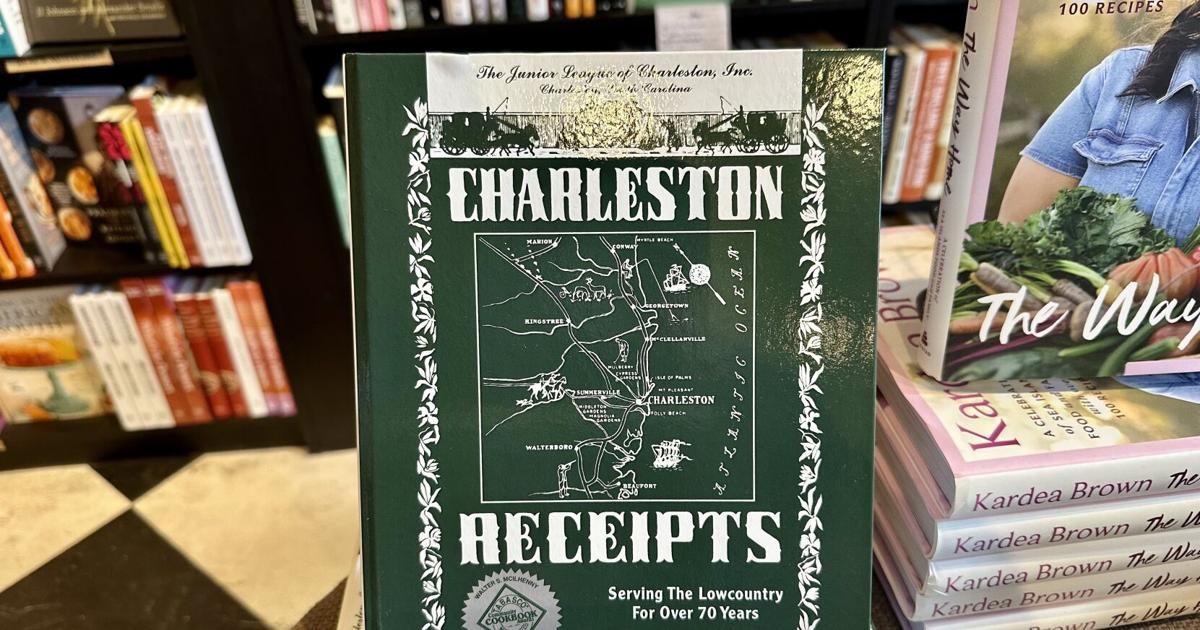
For many in the Lowcountry, you’re not a real Charleston chef unless your culinary library includes the cookbook “Charleston Receipts.”
The sturdy little book with the cardboard cover has sold just south of 884,000 copies to come-yas, been-yas, high society and lowbrow. It turns 75 this November.
The book was created by the Junior League of Charleston (JLC) chapter with a $150 investment and seven months of collecting, testing and organizing recipes that “encapsulated the basic and important recipes of 1950,” said chapter executive director Amy Jenkins.
The first printing of 2,000 copies sold out in four days.
As with the book’s growth, the JLC chapter has grown to nearly 1,000 members who work to advance women’s leadership. Sales from the book fund donations to more than 50 programs the Junior League has begun, including Roper United Way, the Charleston Rolling Library and Horizon House.
The group started the Dee Norton Child Advocacy Center before turning the center over to independent management. And one of the chapter’s signature projects, in addition to the cookbook, is the Junior League of Charleston Diaper Bank, which has distributed more than 1 million diapers to more than 20,000 families in need.
“Nearly every nonprofit in Charleston has been impacted by the Junior League of Charleston because our women go and work as volunteers or board members, or start new nonprofits, or start programs that are absorbed by nonprofits,” Jenkins said.
The recipes in its 350-page cookbook owe much of their provenance to the Gullah Geechie cooks in many of the Junior League families.
“A lot of the recipes may actually have been original to the cook in the house,” Jenkins said. “The League members who were a part of the original committee used their strong relationships with local cooks to publish many recipes that were previously unwritten. Even back then, they saw the importance of honoring everyone who contributed to this book, which is why the book has Gullah verses and sketches by Charleston artists.”
Recipes that could be attributed to the family cook often include that person’s name in the recipe notes. There are Gullah phrases to introduce each section, and anecdotes about family cooks enhance many of the recipes. In 1989, the 26th printing added a translation of the Gullah phrases used.
“It’s a gem of a book,” said Lowcountry chef and advocate B.J. Dennis, who has been vocal about those who have appropriated the contributions of the Gullah Geechee people. “It’s one of the few historical books of any sort from Charleston that gives some slight reverence to the importance of Gullah Geechee culture to this city’s culture.”
As “Charleston Receipts” celebrates this milestone anniversary, JLC is planning a reprint of the famous book in the next couple of years.
“We are introducing a new forward, and several renowned historians are helping us work on how best to explain that (servant-to-junior-league-member) relationship. We may be updating some recipes, but most importantly, we want to preserve the book as it is, because it speaks back to a time and place important to all of us,” Jenkins said. “It’s as much a history book as a cookbook.”
“Charleston Receipts” is a time capsule, but is a book that directs a home chef to “clean squirrels and rub with salt and pepper” for broiled squirrel still relevant?
For Jenkins, the answer is a resounding “yes.”
“I certainly think the cheese straws are one of my favorite recipes, and I make the Huguenot Torte most Thanksgivings,” she said. “Of course, there are some recipes, like the one for Roast Possum. I think not a lot of us are finding possum these days. We’re so fortunate to work with acclaimed individuals who are helping us navigate the next printing. We have to weigh updating, maybe reformatting and keeping it relevant with preserving this treasure.”